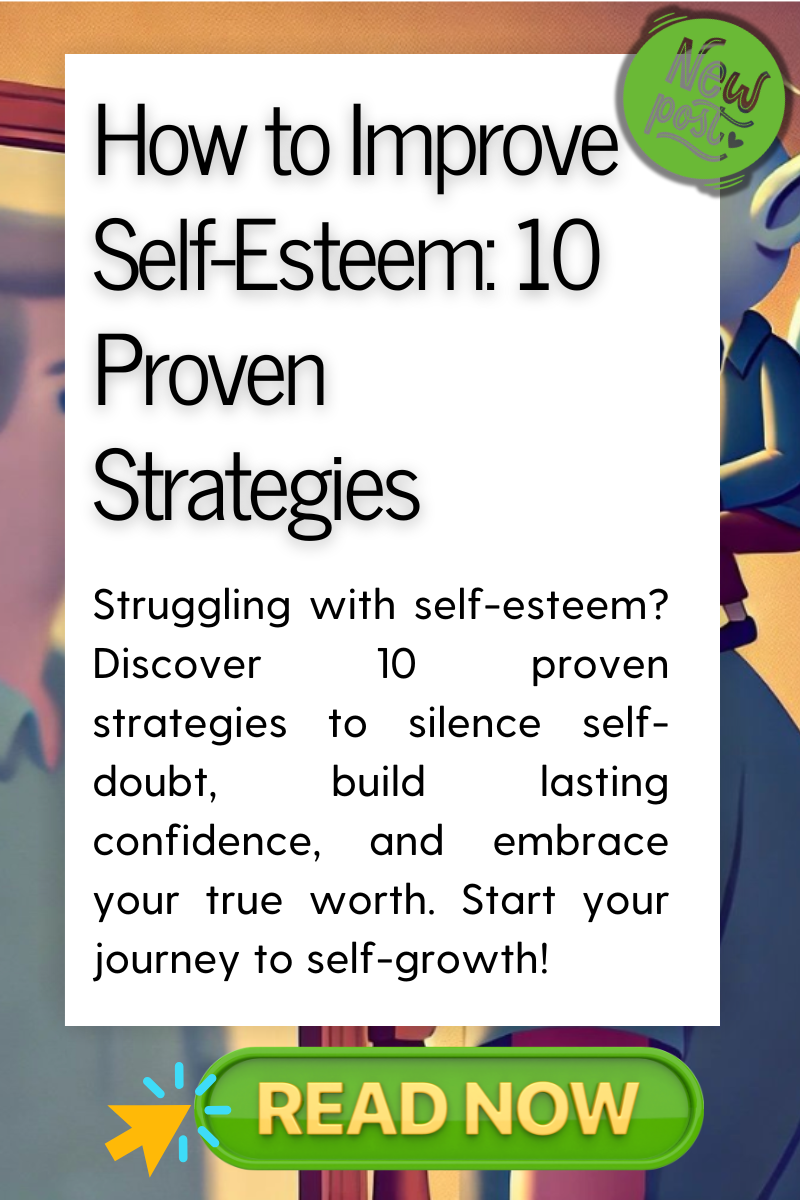What Is the Purpose of a Life Coach & What They Do
You’re not the only one wondering what the actual purpose of a life coach is… or whether life coaching really works.
Maybe someone mentioned it during a tough season. Maybe you’ve seen posts about coaching sessions or personal growth and thought… Is this for me?
Are life coaches therapists? Goal-setters? Cheerleaders?
And what do they really do?
This guide won’t hype you up with empty promises. Instead, it’ll walk you through what life coaching actually is, how the coaching process works, and whether it makes sense for your personal development or professional goals.
Because when you feel stuck—professionally, emotionally, or somewhere in between—it helps to have a trained partner. Someone focused on your next steps, your core values, and the parts of your life that need attention now.
Let’s break it down… starting with what life coaching really means.
What Is Life Coaching, Really?
Life coaching isn’t therapy. It’s not advice-giving. And it’s definitely not just hype.
At its core, life coaching is a professional partnership focused on growth. The International Coaching Federation defines coaching as partnering with clients in a thought‑provoking, creative process that inspires them to maximize their personal and professional potential, which underscores the collaborative nature of effective coaching relationships.
A coach helps you explore your current situation, clarify your values, and move toward your goals with intention. The coaching process isn’t about fixing you… it’s about unlocking the parts of you that are ready for something new.
In a coaching session, you’re not handed answers. Instead, your coach uses active listening and guided reflection to help you see things from a different perspective. The goal isn’t perfection. It’s momentum.
The life coach’s role is to guide—not direct. They hold space for your insight to surface, then help you create a personalized plan of action. That’s why so many people turn to life coaching when they feel stuck. It’s not about what someone else thinks you should do. It’s about discovering your own answers and moving toward a more fulfilling life.
What Does a Life Coach Do (and Not Do)?
A good coach won’t tell you what to do. Instead, they ask powerful questions that help you clarify what matters.
During a typical coaching session, you might:
Set specific goals around your personal or professional life
Map out action plans with clear next steps
Talk through emotional blocks or negative self-talk
Explore how your past experiences shape your current patterns
Reconnect with your deeper sense of purpose
What they don’t do: diagnose mental health conditions, prescribe treatment, or act like a therapist. That’s a key difference.
Coaching is about helping you move forward—not relive the past. The coaching relationship is rooted in mutual trust and accountability. A life coach helps guide clients toward their own wisdom using structure, support, and a strong understanding of human behavior.
Why Do People Hire a Life Coach?
Because life gets complicated… and sometimes, we need help sorting it out.
Many people start coaching during a major life transition. Maybe they’re facing career transitions, relationship shifts, burnout, or an identity crisis. Others are chasing big personal goals but don’t know where to start.
Coaching helps in a wide range of areas:
Finding better work-life balance
Clarifying professional goals
Rebuilding after a breakup or job loss
Making a smoother transition into a new chapter
For some, coaching is about improving mindset. For others, it’s about overcoming emotional challenges, confronting fear, or stepping out of survival mode.
You don’t need to be falling apart to benefit from life coaching. You just need to want something to shift.
The Benefits of Life Coaching
Life coaching creates space for transformation. According to Coach Training EDU, life coaching integrates positive psychology, goal‑setting theory, cognitive‑behavioral techniques and neuroplasticity research, and studies show coaching significantly enhances personal growth, resilience and goal attainment.
It gives you a place to clarify your goals, explore your core values, and stretch beyond what you thought was possible.
Key benefits include:
A deeper understanding of who you are and what you want
Measurable progress toward meaningful goals
Reduced overwhelm and more confidence in daily decisions
Positive changes in your relationships, mindset, and career
Personal growth that impacts every area of life
Harvard’s Institute of Coaching reports that 80% of coaching clients experience increased self‑confidence, and over 70% improve work performance, relationships and communication, demonstrating the significant personal and professional gains associated with coaching.
When coaching works well, it helps you align with your full potential—not in a buzzword-y way, but in a grounded, step-by-step way. The benefits aren’t instant, but they’re lasting.
How Is Coaching Different from Therapy or Consulting?
Here’s where things get confusing… and where it’s important to be clear.
Therapists are licensed mental health professionals trained to diagnose and treat conditions like depression, anxiety, trauma, and more. They often focus on healing past issues or mental health treatment.
Consultants offer expert advice and solutions. You hire them to solve specific problems using their knowledge.
Life coaches, on the other hand, focus on where you are now and where you want to go. They don’t treat mental health conditions or give you the answers. Instead, they help you tap into your own. As Verywell Mind points out, psychotherapists are licensed to diagnose and treat mental illness, whereas life coaches are not; coaching is action‑oriented and future‑focused rather than a substitute for therapy.
Some of the key differences:
Coaching is forward-focused and action-oriented
Therapy is past-focused and healing-centered
Consulting is solution-driven and directive
If you’re dealing with trauma or serious mental health issues, therapy may be the best fit. But if you’re feeling stuck and want support clarifying goals or making lifestyle changes, coaching can be the better path.
The Role of a Life Coach in Different Areas of Life
Life coaches help with more than just career decisions or goal setting. They support people across all areas of life.
You might work with:
A relationship coach to improve connection or navigate conflict
An executive coach to help with leadership and performance
A career coach to transition into a new job or field
Coaching can help you reset your professional life, but it also shows up in your personal life—your health, your habits, your relationships.
Because everything is connected. When you grow in one area, it impacts others.
Who Should (and Shouldn’t) Hire a Life Coach?
You don’t need a big crisis to work with a life coach. You just need curiosity and a desire for change.
People who benefit most from coaching are open to reflection, ready for accountability, and willing to try new ways of thinking.
A good life coach will:
Ask thoughtful questions
Create a safe space for honesty
Respect your unique needs and challenges
Help you move forward without judgment
That said, life coaching isn’t right for everyone. If you’re facing serious mental health issues, you should work with the appropriate mental health professionals.
The right coach won’t push past that boundary. They’ll recognize when a different kind of support is needed.
How to Choose the Right Life Coach
Choosing the right life coach can make all the difference.
Look for someone who:
Is certified by a reputable organization like the International Coaching Federation
Has completed trusted life coach certification or training programs
Communicates clearly and listens without judgment
Respects your pace, your voice, and your boundaries
Offers a free consult so you can feel things out first
The best coaching relationships are built on trust. If a coach talks more than they listen or pushes a one-size-fits-all plan… that’s a red flag. The Life Purpose Institute advises that prospective coaches select programs accredited by the International Coaching Federation because ICF accreditation ensures high standards and quality education.
Use your gut. The right life coach should feel like a partner, not a performer.
Common Myths About Life Coaches
Let’s clear up a few common myths.
Myth 1: Life coaches are just therapists without degrees.
Reality: Therapy and coaching are two different fields, with different purposes and ethics.
Myth 2: A coach will tell you what to do.
Reality: A good coach helps you figure it out for yourself.
Myth 3: Coaching is only for people with big goals.
Reality: Many clients just want to feel better about where they are—and move forward without so much internal resistance.
Myth 4: Life coaches only focus on success or performance.
Reality: Coaching helps with confidence, relationships, emotional health, and even how you view past experiences.
The goal isn’t to be perfect. It’s to live with more awareness, alignment, and purpose.
Key Insights
Life doesn’t come with a manual. And sometimes, neither does your next move.
That’s where a life coach can help—not by giving you answers, but by helping you ask the right questions.
When you’re feeling disconnected from your core values… when you’re stuck between who you are and who you want to be… coaching becomes a tool for reconnection.
It’s not about chasing someone else’s idea of success. It’s about defining your own and aligning your actions with it. That’s where change becomes sustainable—and deeply personal.
Reflection Prompt:
What’s one area of your life that feels out of alignment with your values?
Take five minutes to name it without judgment. Then ask yourself:
What would it look like to take one small step toward change this week?
Want Clarity on Your Next Step?
Josh offers coaching sessions designed for moments just like this—when something in your personal or professional life feels stuck, but you’re ready for change.
Start with a free consultation and let’s explore whether coaching is the right fit for your goals.
Join the Conversation
This post is one side of the story… the other side is yours. What came up for you?
Frequently Asked Questions
What types of people work with a life coach?
Life coaching isn’t just for executives or entrepreneurs. In recent years, potential clients have included parents, creatives, business owners, students, and people navigating major life’s challenges. Coaching supports both personal lives and professional development. The goal is to improve the quality of life across the various aspects of their lives—not just one slice.
This is what makes the coaching industry so diverse—different types of coaches serve different needs.
What if I’m facing a specific problem in just one part of my life?
That’s exactly where coaching can help. Whether it’s a specific problem related to your career, your confidence, or your relationships, a coach helps you work through that particular area with clarity and action. Sometimes small changes in one area ripple into the rest.
The best coaches help you connect the dots between specific areas and bigger goals—whether personal or professional.
Can a coach help with professional growth or career advancement?
Absolutely. Career coaches focus on helping you identify strengths, develop new skills, and take steps toward long-term goals. Whether you’re changing fields or aiming for a promotion, coaching offers various tools for growth, clarity, and momentum.
This is one of the best ways to take control of your professional life without burning out in the process.
How do coaches approach emotional blocks like past traumas?
While life coaches don’t replace therapists or formal therapy sessions, many understand how past experiences and trauma patterns shape our daily lives. Coaching can offer valuable support when you’re ready to move forward but still feel stuck. Effective coaching meets you with compassion while helping you take action in a way that feels safe and empowering.
What if I’ve already done therapy, journaling, and self-help?
Great. That means you’re already self-aware. Coaching helps bridge the gap between insight and action. Using tools like motivational interviewing, personalized strategies, and a deeper understanding of your life goals, a coach helps you take what you know… and turn it into momentum.
Many clients say coaching brought things full circle after years of inner work.
How do I find the right type of coach?
Start by naming what feels most urgent. If it’s burnout at work, you might want a career coach. If it’s emotional fatigue, a wellness or life purpose coach could be better. If it’s your connection with others, relationship coaches might be a fit.
There are many types of coaches—including executive coaches, certified life coaches, and wellness coaches—and each supports different areas of your life.
The best way to choose is by listening to your gut, reading reviews, and making sure they meet you with strong communication skills and real understanding.
What happens during initial meetings?
You’ll explore the aspects of your life that feel out of sync. A certified life coach will help you map out clear goals and long-term intentions while addressing short-term stressors. These first conversations also help you clarify your values, outline specific areas to work on, and determine the coaching format that best fits your needs.
Think of it as a reset—a starting point that focuses on you.
What makes coaching different from advice from a best friend?
Your best friend may give comfort, but a life coach offers structure, accountability, and tailored tools. You’ll get honest feedback, communication techniques, and support from someone trained to help you shift—not just vent.
A professional life coach is focused on your goals and outcomes, not their opinions or your history together.
Still Wondering If a Life Coach Is Right for You?
Coaching isn’t about fixing your life overnight.
It’s about building something stronger, one step at a time.
✅ Essential Reads for Personal and Professional Growth
The right book at the right time can shift your thinking. But the help of a life coach can turn that shift into real momentum.
The books below cover different ways to approach growth—through reflection, habit-building, purpose, and emotional healing. They’re a great companion to coaching and a powerful way to revisit the core of your personal experience.
The Coaching Habit by Michael Bungay Stanier
Used by professional coaches and leaders alike. This book shows how effective coaching starts with asking better questions. It’s about shifting conversations toward action and clarity—and works well across both personal lives and professional development.
Designing Your Life by Bill Burnett & Dave Evans
Perfect for career advancement, life transitions, and designing a life that aligns with your values. It walks you through using design thinking to navigate challenges and reach your end goal.
Whether you’re focusing on your career path or wellness, this book fits across many specific areas of coaching.
Emotional Agility by Susan David
Addresses the emotional side of growth—like self-doubt, past traumas, and the inner critic. It’s a powerful read if you’re trying to move forward with more flexibility and intention in both your personal and professional life.
Atomic Habits by James Clear
A go-to for building routines that stick. This one helps you improve your quality of life through consistent, realistic steps toward long-term goals. It’s one of the best ways to create meaningful results in your daily life.
The Body Keeps the Score by Bessel van der Kolk
If old wounds are showing up in your daily habits, this book will help you understand why. While not a coaching book, it supports emotional wellness work and pairs well with wellness coaches or trauma-informed professionals.
Books Spark Insight. Coaching Turns It Into Action.
You don’t need all the answers. Just the right support.
Ready to go deeper? Start here.
About Josh – Life Coaching with Heart, Clarity, and Momentum
You don’t need a polished plan to start. You just need a real conversation with someone who gets it.
Josh Dolin is a certified life coach who helps people navigate change, build confidence, and reconnect with their purpose. He works with individuals from all walks of life—people building careers, raising families, recovering from burnout, or rebuilding after major life shifts.
His coaching blends structure and support, drawing on training from leading certification programs and years of experience helping others move forward. Whether you’re working through emotional challenges, trying to reset your physical health, or ready to grow in your professional life, coaching with Josh gives you space to get clear—and take action.
Real Coaching. Real Support. Real Momentum.
Want to find out if life coaching is right for you?
Book your free consultation and let’s explore what’s possible.


























